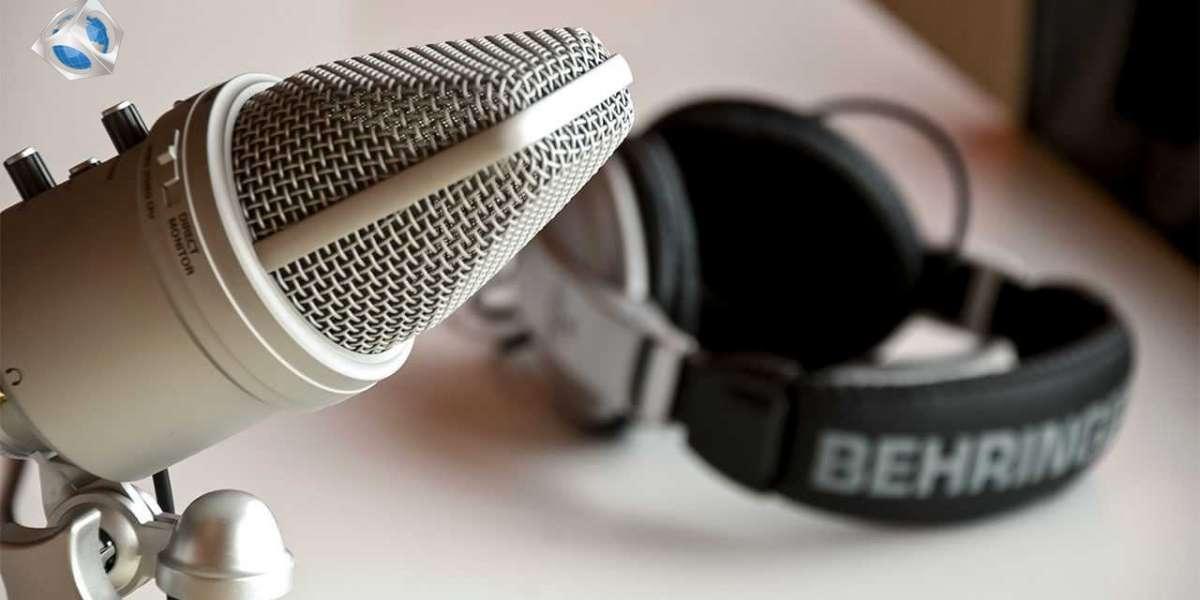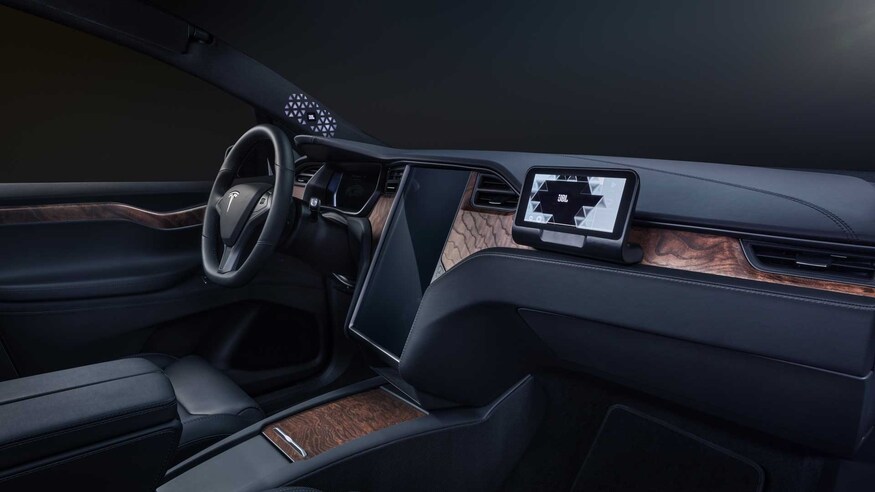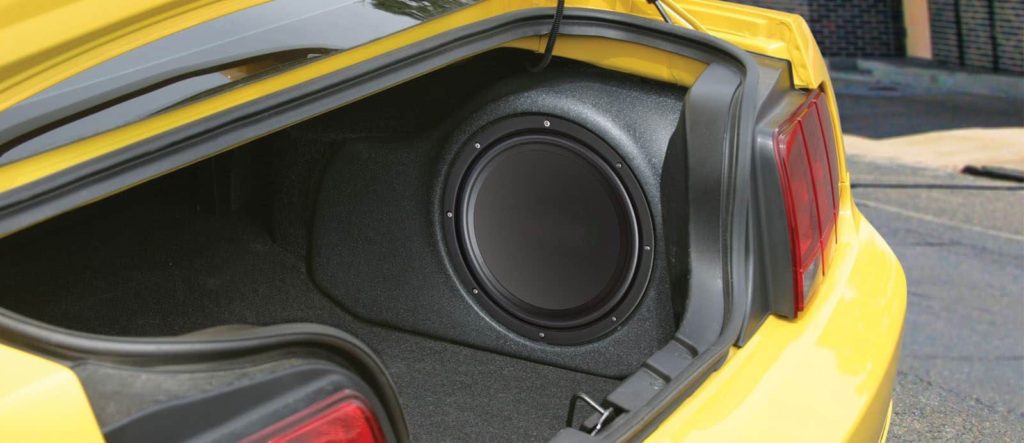The 10 Best Car Speakers for Your Ride

There’s nothing quite like a long drive…ok, well maybe that isn’t true, but music— and a high-quality sound system—make the trip so much better. Although, for your average audiophile, stock speakers may not cut it. Audio quality almost always has room for improvement. Below, we’ll cover some of the best car speakers available on the market, and how you can go about getting one for yourself.
Car Audio System FAQ

1. What Makes the Best Car Speakers?
The best car speakers will vary, from person to person, and is definitely more of a subjective term. The most important first step when deciding what the best car speakers are for you is to identify your needs and desires for a car stereo system.
It’s also important to determine your budget, and plan out whether you want to acquire each component of your car stereo one at a time, or all at once. Determining your needs will depend on what type of car you have and the features you are looking for in your brand-new set of high-quality car speakers.
2. How Do Car Speakers Differ From Normal Speakers?
Car speakers run on direct current or DC power, while sound equipment wired for the home will use alternating current, or A/C power. Also, car speakers run usually run on 4 Ohms, while home stereo equipment tends to run on 8 Ohms.
What are Ohms?
An Ohm is a unit of electrical resistance. For each Ohm, it will require one volt of electricity to produce one ampere of sound. Meaning that a 4-ohm speaker will produce four amperes for each volt of electricity, and an 8-ohm speaker will produce eight amperes for each volt of electricity.
Why Is That Important?
Because of this, aftermarket car stereo systems typically require a low-voltage, high ampere, amplifier. Additionally, car speakers and home speakers have different design goals. While sometimes they can be used interchangeably, for best use, it’s important to get speakers specific to the environment in which they will be used.
3. Is This Article About Subwoofers?

While a subwoofer is a great addition to any car system, in this article we won’t cover much about subwoofers—it covers aftermarket audio systems and sound systems as a whole. It will cover how you can get the best sound from ALL of the speakers in your car, including super tweeters and high-frequency speakers—not just adding a new and improved low end.
4. What About My Stock Head Unit and Factory Speakers?
When you’re ready to install new speakers in your car, your factory head unit (aka “receiver” or “stereo”) should come out first. Removing your factory head unit is a fairly easy task—but if a youtube video isn’t enough, you might consider having a professional, or at least someone with a bit of experience, do it for you.
5. Do Aftermarket Car Speakers Need an Amplifier?
Absolutely. Even stock car stereo systems come with an amplifier, even if it is a weak one, built into the stereo deck or head unit.
This is because the sound signal produced by the deck is too weak to be heard without at least some level of amplification. Most of the time, the goal of installing an aftermarket sound system is a result of louder, clearer-sounding music.
Our Buying Guide
When it comes to finding the best car speakers, there are a handful of great options available. The best speakers for you will depend upon the price point you’re looking at and the features that you value most in car speakers.
Power Handling

When buying your amplifier and speakers, pay attention to power handling. Power handling (measured in watts or watts max) refers to the amount of power that a speaker can handle.
If you have a low-powered system, your speakers will not need to handle too much power. However, a powerful system will require speakers that can handle that level of power.
There is a difference between RMS power handling and peak power handling.
RMS, or Root Mean Square, measures the power that a speaker can handle on a continuous basis. A system rated at 2-50 watts RMS will make a better match for your low-powered stereo than another system rated at 10-80 watts RMS.
Other Factors
It is important to consider how much energy, time, and money you are willing to invest into your new car audio system. The first decision, after figuring out your car stereo system goals and price range, is whether to purchase component speakers or full-range speakers.
Component speakers will come separately, and will generally be a little higher quality, as well as more costly when added together. Going with the decision for component speakers will involve a little more time and research since you will be choosing each type of speaker individually.
Another good reason to go the route of component speakers is that maybe you are only looking to replace one component of your car stereo system. Another question to consider when deciding between a component system and full-range speakers is what frequency range you are looking to improve.
What About Low-End or High-End?
Are you looking for a bass boost with louder low-end frequencies? Consider looking into aftermarket subwoofers. Maybe the sound in your car is fine, but the high notes are not sounding as crisp as you’d like. Maybe it’s time for new aftermarket tweeters.
If you are looking to keep costs to a minimum and just want a simple quick improvement to sound quality and volume, it may be best to save yourself some hassle and just go with full-range speakers.
How Big?
No matter if you decided to go with a component system or full-range speakers, the next question to ask yourself is what size speakers you will be looking for. Generally speaking, larger speakers of the same quality and brand will have a higher quality sound, but also cost a little more.
Something else to take into consideration when it comes to size in a component system is keeping correct proportions when comparing the different types of speakers in the car. How big are the door speakers you have now? What frequency range are you looking for? Do you just want an overall louder volume, or are you looking for a cleaner sound as well?
Overall Price Range
Depending on the types of features you are looking for, you can expect to spend somewhere from around $60 all the way up to $200 per speaker on the top-of-the-line best car speakers.
Pyle 4” x 6” Three-Way Sound Speaker System
Features
This three-way sound speaker system features an eye-catching blue poly injection cone for all the stiffness without the added weight. It uses a 1-inch ASV voice coil that can handle high temperatures and high-wattage situations.
It has a low impedance with a Pyle 4-ohm component audio speaker that compensates for the undersized wire found in today’s cars.
This speaker makes the most out of every one of the 240 watts the car stereo can deliver. It uses a 20-ounce magnet structure and a 1-inch neodymium film dome midrange, along with a 3/4-inch piezo tweeter to power the sound. It uses non-fatiguing butyl rubber surround that keeps the speakers secure to give them a longer life and protect them from the shocks of driving along the road.
Infinity Kappa 60.11CS 6-3/4″ Component Speaker System
Features
The Infinity Kappa car speaker is one of the best car speakers available. It utilizes a pair of 6.5-inch car audio 2-way component systems. Each has a peak of 270 watts, which is 540 watts per pair of Infinity Kappa speakers. There is a great frequency of response and impedance of approximately 2 ohms.
JBL GTO629 Premium 6.5-Inch Co-Axial Speaker
Features
This JBL option is one of the best car speakers available on the market because it uses a carbon-injected Plus One cone that is larger than others in their size class so that they are able to move more air and give you a stronger bass.
It uses a patented UniPivot tweeter that allows you to aim the sound directly at your ears, even when the speakers are mounted down low, giving you a much more lifelike sound.
Dual-level tweeter volume adjustments can be set to suit your personal listening preferences and musical tastes. These speakers are of low impedance and have a maximum of three ohms that compensate for the undersized wires found in many cars today.
Source URL: https://www.audioegghead.com/the-10-best-car-speakers/
- Art
- Causes
- Crafts
- Dance
- Drinks
- Film
- Fitness
- Food
- الألعاب
- Gardening
- Health
- الرئيسية
- Literature
- Music
- Networking
- أخرى
- Party
- Religion
- Shopping
- Sports
- Theater
- Wellness
- IT, Cloud, Software and Technology


